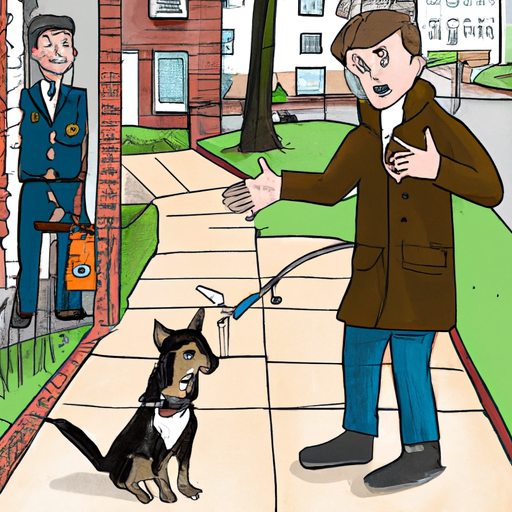Introduction
Walking your dog should be an enjoyable experience, one that offers bonding time and exercise for both of you. But if your dog is consistently barking at strangers, it can turn your peaceful walks into stressful situations. This article takes you through several strategies to help stop your dog from barking at strangers during walks.
1. Understanding Why Your Dog Barks
First, it’s important to understand why your dog barks at strangers. It could be due to fear, territorial behavior, or excitement.
- Fear: Dogs often bark at strangers out of fear. This is their way of saying, “Stay away!”
- Territorial behavior: Your dog may feel like they need to protect you and their territory from strangers.
- Excitement: Some dogs simply can’t contain their excitement and express it through barking.
Understanding the root cause of your dog’s barking will help you address it more efficiently.
2. Training Your Dog to Remain Calm
With consistent training, you can teach your dog to remain calm around strangers. Here’s a step-by-step guide:
- Start in a controlled environment: Train your dog at home first before introducing them to the world outside.
- Use positive reinforcement: Reward your dog when they’re calm. This could be verbal praise, a favorite toy, or a tasty treat.
- Gradually introduce strangers: Start by having a friend walk past your house. Reward your dog for not barking.
- Repeat the process: Consistency is key in training. Repeat the process multiple times until your dog learns to stay calm even when strangers are present.
3. Socializing Your Dog
Socializing your dog with different people and environments can also help reduce their barking. Socialization helps your dog learn that strangers are not a threat.
- Take your dog to public places: This could be a park, a pet store, or a dog-friendly café.
- Expose your dog to different people: Let your dog meet people of different ages, sizes, and ethnicities.
- Attend dog socialization classes: These classes provide a controlled environment for your dog to interact with other dogs and people.
4. Using Distractions
A simple yet effective strategy is to distract your dog when they start barking at strangers.
- Use a favorite toy or treat: As soon as you see a stranger approaching, distract your dog with their favorite toy or treat.
- Change your route: If your dog starts barking, change your direction. This can distract your dog and break their focus on the stranger.
- Use a sound or command: A whistle or a specific command can also serve as a distraction.
5. Seeking Professional Help
If the barking persists despite your best efforts, it may be time to seek professional help. Dog trainers and behaviorists can provide personalized training plans for your dog.
| Type of Professional | What They Do |
|---|---|
| Dog Trainer | Teach basic obedience skills |
| Dog Behaviorist | Address behavioral issues, like excessive barking |
6. Medical Check-Up
Sometimes, excessive barking can be a sign of an underlying health issue. If your dog’s barking is accompanied by other changes in behavior, it’s best to consult a vet.
7. Using Dog Calming Products
Lastly, consider using dog calming products. These can include pheromone diffusers, calming treats, or anxiety wraps. However, these should be used in conjunction with training, not as a replacement.
FAQ
Q: How long will it take to train my dog not to bark at strangers?
A: The time it takes may vary depending on your dog’s personality and the training method you’re using. Consistency is key.
Q: What should I do if my dog becomes aggressive towards strangers?
A: If your dog is showing signs of aggression, it’s recommended to seek help from a professional dog trainer or behaviorist.
Q: Are there specific breeds that are more prone to barking at strangers?
A: While any dog can develop this behavior, some breeds are known for being more protective or excitable, which can lead to barking at strangers.
Q: Can I use a bark collar to stop my dog from barking at strangers?
A: While bark collars can deter barking, they don’t address the underlying issue. It’s better to use training and behavior modification techniques.
Remember, the key to overcoming your dog’s barking habit is patience, consistency, and understanding. With time and effort, your peaceful walks can be restored.



